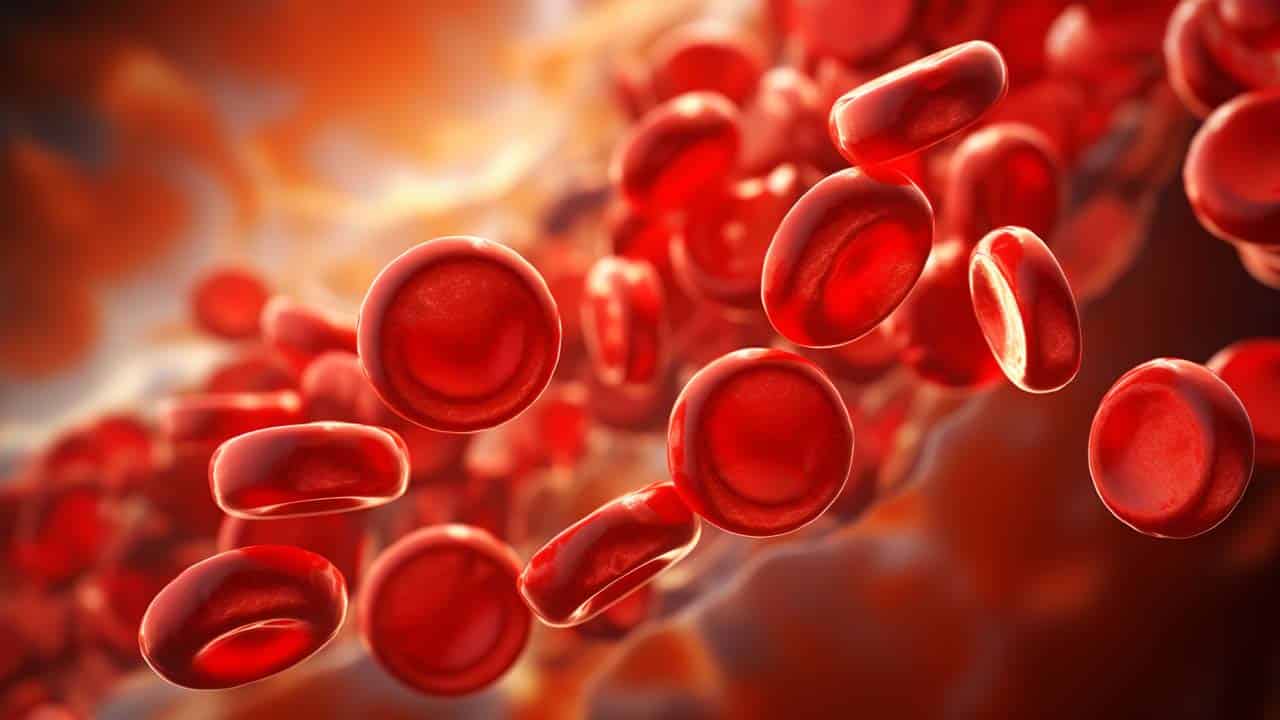
Medical Weight Loss For Diabetics: A Comprehensive Approach to Healthier Living
Medical weight loss for diabetics in Platt Park, Colorado is a specialized approach to weight management that focuses on addressing the unique challenges faced by individuals with diabetes. This targeted approach aims to help diabetics achieve and maintain a healthy weight, improve their blood sugar control, and reduce their risk of diabetes-related complications. Through personalized medical interventions and support, medical weight loss programs for diabetics can offer a range of benefits and advantages to individuals seeking to better manage their condition and improve their overall health.
Semaglutide
Semaglutide is available as an injectable liquid solution under the brand names Ozempic and Wegovy, with Doctor-approved subcutaneous injection pens. These medications offer a convenient and effective way for diabetics to manage their weight and improve their overall health. With the use of Doctor-approved injectable pens, individuals can easily administer these medications at home, under the guidance of their healthcare provider. Semaglutide has been shown to provide significant weight loss benefits for individuals with diabetes, making it a valuable tool in the medical weight loss arsenal. The availability of different strengths allows for personalized treatment plans, ensuring that individuals can find the right dosage for their specific needs.
Tirzepatide
Tirzepatide is a new medication that has shown promising results for the treatment of obesity and overweight in adults, especially in those with diabetes. One of the potential benefits of tirzepatide is its ability to help patients achieve significant weight loss, which is a crucial factor in managing diabetes. In addition to weight loss, tirzepatide has also shown to improve blood sugar control and reduce the risk of cardiovascular events in diabetic patients.
The strengths and dosages of tirzepatide, marketed under the brand name Mounjaro, were determined based on the results of a phase 3 clinical trial. The trial demonstrated that patients who received tirzepatide experienced greater weight loss compared to those who received a placebo. The Doctor has not yet approved tirzepatide for the treatment of obesity and overweight in adults, but it is currently undergoing the approval process.
Liraglutide
Liraglutide is a medication that is available in two forms: Saxenda and Victoza. Both forms of Liraglutide have been approved by the Doctor for weight loss and management of blood sugar levels in diabetic individuals.
Saxenda is specifically designed for weight management and is administered as a daily injection under the skin. It is typically prescribed at a higher dose for weight loss compared to its Victoza counterpart. On the other hand, Victoza is primarily used for managing blood sugar levels in individuals with type 2 diabetes and is administered as a daily injection under the skin.
Both forms of Liraglutide work by mimicking the hormone GLP-1, which helps regulate blood sugar levels, slows down digestion, and reduces appetite. As a result, individuals using Saxenda or Victoza may experience weight loss as well as improved blood sugar control.
SGLT2 Inhibitors
SGLT2 inhibitors work by blocking the reabsorption of glucose in the kidneys, leading to the excretion of excess glucose in the urine. This mechanism helps to reduce blood sugar levels and can also lead to weight loss in individuals with diabetes.
The potential weight loss effects of SGLT2 inhibitors can be observed within a few weeks to a few months of starting the medication. The exact timeline for weight loss may vary depending on individual factors such as diet, exercise, and overall health. Additionally, the amount of weight loss experienced by individuals may also vary.
Metformin
Metformin is a medication that is commonly used to treat type 2 diabetes. It works in the body by decreasing the amount of glucose produced by the liver and increasing the sensitivity of muscle cells to insulin. This helps to lower blood sugar levels and improve the body’s response to insulin. In addition to its role in managing diabetes, metformin has also been found to have potential for weight loss in individuals with diabetes.
Metformin is classified as a biguanide drug, which means it belongs to a class of medications that work to lower blood sugar levels. It is often used in combination with other diabetes medications, such as GLP-1 drugs, to further improve blood sugar control and promote weight loss.
In terms of weight loss, metformin has been found to help individuals with diabetes lose an average of 5-7% of their body weight over the course of several months. However, it is important to note that individual results may vary, and the amount of weight loss achieved with metformin can depend on factors such as diet and exercise habits.
GLP-1 Receptor Agonists
GLP-1 receptor agonists are a class of medications that work by mimicking the action of the hormone GLP-1, which helps to regulate blood sugar levels. These medications work by stimulating the release of insulin, reducing the production of glucagon, and slowing down the emptying of the stomach. This can lead to improved blood sugar control and a reduction in body weight.
There are several Doctor-approved medications in this class, which have been shown to not only help with managing diabetes, but also promote weight loss as a side effect. The relevance of GLP-1 receptor agonists for diabetes and weight loss is significant, as many people with diabetes struggle with weight management and obesity is a risk factor for developing the disease. These medications offer a dual benefit of improving blood sugar control and aiding in weight loss, making them a valuable option for individuals with diabetes who are seeking medical weight loss solutions.
DPP-4 Inhibitors
DPP-4 inhibitors, such as Januvia, Onglyza, and Nesina, are a class of medications used for diabetes management. These medications work by blocking the enzyme dipeptidyl peptidase-4 (DPP-4), which in turn helps to lower blood glucose levels. Additionally, DPP-4 inhibitors can also have potential weight-related benefits for individuals with diabetes.
One of the advantages of DPP-4 inhibitors is their neutral or weight-neutral effect, meaning they are less likely to cause weight gain compared to other diabetes medications. This can be beneficial for individuals who are also interested in medical weight loss. Furthermore, DPP-4 inhibitors are generally well-tolerated and have a lower risk of causing hypoglycemia compared to some other diabetes medications.
Insulin Sensitizers
Insulin sensitizers are a class of medications used in the treatment of diabetes, specifically type 2 diabetes. They work by reducing insulin resistance in the body, allowing the cells to more effectively respond to insulin and thereby lowering blood sugar levels. Examples of insulin sensitizers include metformin, thiazolidinediones (TZDs), and DPP-4 inhibitors.
Potential side effects of insulin sensitizers may include gastrointestinal symptoms such as nausea, diarrhea, and abdominal discomfort. In some cases, insulin sensitizers may also be contraindicated in individuals with liver or kidney disease, as they can affect these organs.
Numerous studies have provided evidence supporting the use of insulin sensitizers in managing insulin resistance and type 2 diabetes. They have been shown to effectively lower blood sugar levels, improve insulin sensitivity, and reduce the risk of cardiovascular complications associated with diabetes.
Weight Loss Potential
Medical weight loss for diabetics has numerous potential benefits. For those with type 2 diabetes, losing weight can lead to improved insulin sensitivity, reducing the need for diabetes medication and decreasing the risk of complications. In some cases, significant weight loss can even put type 2 diabetes into remission, allowing individuals to come off their diabetes medication completely.
In addition to the physical benefits, such as improved blood sugar levels and overall better health, there are also emotional benefits to losing weight. Many individuals experience improved mood, increased energy, and better sleep as a result of shedding excess pounds.
Individualized Treatment Plans
Medical weight loss for diabetics is a critical aspect of managing the condition and improving overall health. It is essential to create individualized treatment plans based on the patient’s specific needs, medical history, and current condition. Personalized care is crucial in addressing the unique health issues and goals of the individual. By tailoring the plan to meet the individual’s specific needs, medical professionals can ensure that the treatment aligns with the patient’s current medications or treatments and avoids any potential interactions. This approach allows for a more patient-specific treatment that takes into account the individual’s medical history and tailored plan. By creating individualized treatment plans, patients can work towards achieving their individual health goals in a safe and effective manner. This personalized approach helps to improve compliance and outcomes, as it takes into consideration the unique circumstances and needs of each individual.
Medication Adherence
Medication adherence is crucial for individuals with diabetes who are looking to achieve weight loss goals. Following prescribed medications, including GLP-1 analogues and Orlistat, can significantly aid in weight management. GLP-1 analogues work by decreasing appetite and promoting feelings of fullness, while Orlistat helps to block the absorption of fat in the body.
Non-adherence to diabetes medications can have serious consequences for both diabetes management and weight loss. Skipping doses or not taking medications as directed can lead to uncontrolled blood sugar levels, increased risk of complications, and difficulty in achieving weight loss goals.
It is important for individuals with diabetes to be diligent in taking prescribed medications as directed by their healthcare provider. Doing so can have a positive impact on both diabetes management and weight loss efforts. By adhering to medication regimens, individuals can optimize their chances of successfully reaching their weight loss goals while effectively managing their diabetes.
Hypoglycemia Management
Medical weight loss for diabetics can play a crucial role in managing hypoglycemia. Along with dietary changes, medication adjustments, and lifestyle modifications, it helps in controlling blood glucose levels. Regular monitoring of blood glucose levels is important to identify and address episodes of hypoglycemia promptly. Untreated hypoglycemia can lead to serious consequences, such as seizures, loss of consciousness, and even death. Therefore, having a plan in place to address hypoglycemia is essential. Medical weight loss programs for diabetics can provide personalized strategies to manage hypoglycemia effectively, leading to better overall health and a reduced risk of complications. By incorporating hypoglycemia management into their weight loss plans, diabetics can ensure better control of their condition and improve their quality of life.

Lifestyle Modifications
Medical weight loss for diabetics often includes lifestyle modifications that are key to improving overall health. This typically involves improving diet through increased consumption of whole, nutrient-dense foods and minimizing processed and high-sugar items. Increasing physical activity is also crucial, as it can help improve insulin sensitivity and aid in weight loss. Reducing stress, avoiding tobacco, and moderating alcohol intake are also important components of a healthy lifestyle.
It’s important for individuals to make small, sustainable changes over time rather than drastically altering their lifestyle habits. This can help ensure that the changes are more likely to be maintained long-term. Additionally, focusing on overall health improvements rather than just weight loss can lead to better outcomes for those with diabetes. Through the combination of diet, physical activity, stress reduction, tobacco avoidance, and alcohol moderation, individuals can experience positive changes in their health and well-being.
Diabetes Self-Management
Diabetes self-management for individuals with type 2 diabetes and prediabetes involves various strategies such as lifestyle interventions, medications, and metabolic surgery. Weight management plays a crucial role in preventing type 2 diabetes, and lifestyle interventions such as increasing physical activity and following a healthy diet are recommended for individuals with prediabetes. Medications may also be prescribed to help manage blood sugar levels.
For individuals with diabetes, medical weight loss programs can provide a comprehensive approach to managing their condition. These programs may include personalized dietary plans, regular physical activity, and behavioral therapy to help individuals achieve and maintain a healthy weight. Medical weight loss for diabetics can not only lead to improvements in blood sugar control but also reduce the risk of diabetes-related complications.
Pre-Diabetes Management
Weight management is crucial for individuals with prediabetes, as it can significantly lower the risk of developing type 2 diabetes. Even a modest weight loss of 5-10% of initial body weight can lead to substantial health improvements. Lifestyle interventions are recommended for individuals with prediabetes, such as achieving and maintaining a 7% loss of initial weight and increasing moderate-intensity physical activity to at least 150 minutes per week. These interventions have been shown to be effective in preventing the progression to diabetes.
In some cases, medications may also be prescribed to help with weight management and to prevent the development of diabetes. For individuals with severe obesity and prediabetes, metabolic surgery may be considered as an option to achieve weight loss and improve metabolic health.

Blood Glucose Control
Blood glucose control is crucial in the management of prediabetes and diabetes, especially in the context of weight management. Maintaining blood glucose levels within a healthy range can help prevent the progression from prediabetes to diabetes, and can also help those with diabetes avoid complications such as nerve damage, kidney disease, and cardiovascular problems.
Nutrition therapy plays a key role in improving glycemia, as a healthy and balanced diet can help regulate blood sugar levels. Additionally, weight loss medications and metabolic surgery may be recommended by healthcare providers to achieve better blood glucose control in individuals with obesity and diabetes.

Monitoring and Tracking Progress
Monitoring and tracking progress in medical weight loss for diabetics is crucial to ensure the success of the program. This includes the need for real-time data, clear performance indicators, and regular evaluations. By closely monitoring and tracking progress, healthcare professionals can make informed decisions and adjustments to the treatment plan as needed.
Monitoring and tracking progress can help to identify any potential issues or barriers early on, allowing for timely interventions and modifications to the treatment plan. It also provides the opportunity to celebrate successes and milestones, motivating both the healthcare team and the patient to continue working towards their weight loss and diabetes management goals. Overall, monitoring and tracking progress is essential for the success of medical weight loss for diabetics.
Personalized Support for Diabetic Weight Loss
Medical Health Solutions provides a comprehensive approach to tackle the unique challenges of diabetes. If you’re ready to take the first step towards a healthier you, contact Medical Health Solutions to schedule a weight loss consultation. Let’s work together to improve your blood sugar control and reduce the risk of diabetes-related complications. Call us at (303) 951-8617 and embark on your journey to better health today.
We provide weight loss services for these Lone Tree, Colorado areas:
Lone Tree, Acres Green, Belvedere, Bluffmont Estates, Carriage Club, Centennial Ridge, Club Terrace, Country Club Estates, Cypress Green, Douglas County, Fairways At Lone Tree, Heritage Estates, Heritage Hills, Lincoln Square Lofts, Masters Park, Montecito, Prominence Point, Ridgegate, Taos of Lone Tree, Terra Ridge, The Fairways, and Wildcat Ridge.
We also provide weight loss services for these Denver, Colorado areas:
Denver, Baker, Capitol Hill, Central Business District, Cheesman Park, Cherry Creek, City Park, City Park West, Civic Center, Congress Park, Country Club, Lincoln Park, North Capitol Hill, Speer, Union Station, Belcaro, Cory-Merrill, East Colfax, Hale, Hilltop, Indian Creek, Lowry, Montclair, Park Hill, Virginia Village, Washington Virginia Vale, Windsor, Clayton, Cole, Elyria-Swansea, Five Points, Globeville, North Park Hill, Skyland, South Park Hill, Whittier, Central Park, Gateway, Green Valley Ranch, Montbello, Northeast Park Hill, Auraria, Berkeley, Chaffee Park, Highland, Jefferson Park, Regis, Sloan Lake, Sunnyside, West Highland, College View, South Platte, Overland, Platt Park, Rosedale, University, University Hills, University Park, Washington Park, Washington Park West, Wellshire, Goldsmith, Hampden, Hampden South, Kennedy, Southmoor Park, Southwest, Bear Valley, Fort Logan, Harvey Park, Harvey Park South, Marston, West, Public housing in Sun Valley., Athmar Park, Barnum, Barnum West, Mar Lee, Ruby Hill, Sun Valley, Valverde, Villa Park, West Colfax, and Westwood.
Medical Health Solutions in Lone Tree, Colorado offers medical weight loss. The plan helps people lose weight without hunger, dieting or exercise.






